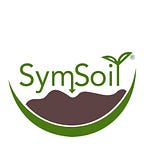Your Food Scraps and Carbon Farming
With Covid-19, we’ve learned the importance of community and individual action. We all desire clear guidelines from the federal and state governments, and municipal support for healthcare. But even with those in place, we also take personal responsibility for face masks and social distancing.
Climate change is similar: Governments negotiate the Paris Accord or meet at the UN Climate Action Summit, seeking government guidelines and support for a transition into a less polluting society, individuals are also taking personal responsibility, with actions that reduce our carbon footprint.
Now there is a new way to reduce your carbon footprint, using the food scraps from your kitchen to make compost for soil-based carbon sequestration. The Local Carbon Network was created to make sequestering a ton of CO2 through carbon farming easy. Think of it as a CSA for your soil.
Local Carbon Networks have existed in San Francisco and Oakland since 2018, and are now seeking early adopters to help with a national roll out, with 3 stages as the local community of carbon farmers develops.
First Stage (Early Adopters): Local Carbon Network will ship you materials to easily and consistently make great compost, out of kitchen waste. Follow the instructions and the full soil microbe biome will sequester a ton of carbon, while increasing the flavor and nutrient density of food from your victory garden or the health and vitality of your houseplants or flower garden.
If you have tried to make compost with food scraps in the past, you already understand the problem. Normally, food scraps make terrible compost — they don’t get hot enough to decompose and generally become a stinky mess.
Plants need organic material which is fully broken down and for the organic material to contain the full range of soil microbes. In contrast to rotting food, high quality, biologically active compost is usually made with multiple types of greens, woody materials, and manures.
The Local Carbon Network has been working on this for over a year and has found a solution that does not involve using manure! A combination of biochar, woody material, an insulated composter and a “finisher” with the full range of soil biology, makes composting easy — with no smells, no insects and no mess!
Members of the Local Carbon Network, anywhere in the United States, will receive regular shipments of biochar, woody material and a finisher to convert food scraps into powerful compost.
Second Phase: With a critical mass of members in one location, LCN will
- Have a local ambassador to manage the local distribution, and to act as a coach answering composting and gardening questions.
- Work with community gardens. Many have talked about urban gardening as a revolutionary act in low income neighborhoods. Drew Costley has written about people of color and their broad support for climate action. LCN has supported community gardens with biochar for co-composting in the Oakland area, and will expand these efforts as LCN membership expands nationally.
- Reduce the cost of LCN membership and the carbon footprint by shipping the monthly materials to a central location for distribution.
Seek local sources for the wood and biochar, reducing the carbon footprint even more. (This is the Third Phase of the Local Carbon Network.)
Membership starts at $50/month, but a portion goes to outreach to others in your community. Close to half the expense is shipping a box to your home.
Once we have an ambassador to manage the LCN membership in your area, we will begin developing a local pickup, reducing the monthly expense AND the carbon footprint of your membership.
Mother Nature needs you to become an early member.
For more information:
Visit LCN at LocalCarbon.net or Facebook. Watch this video to learn more.
